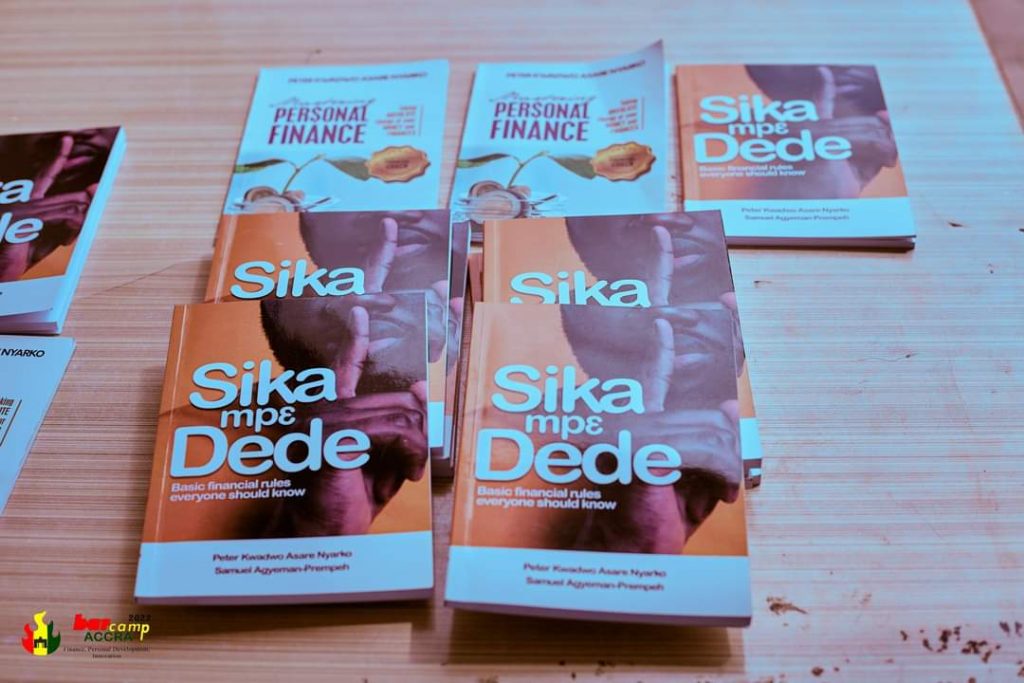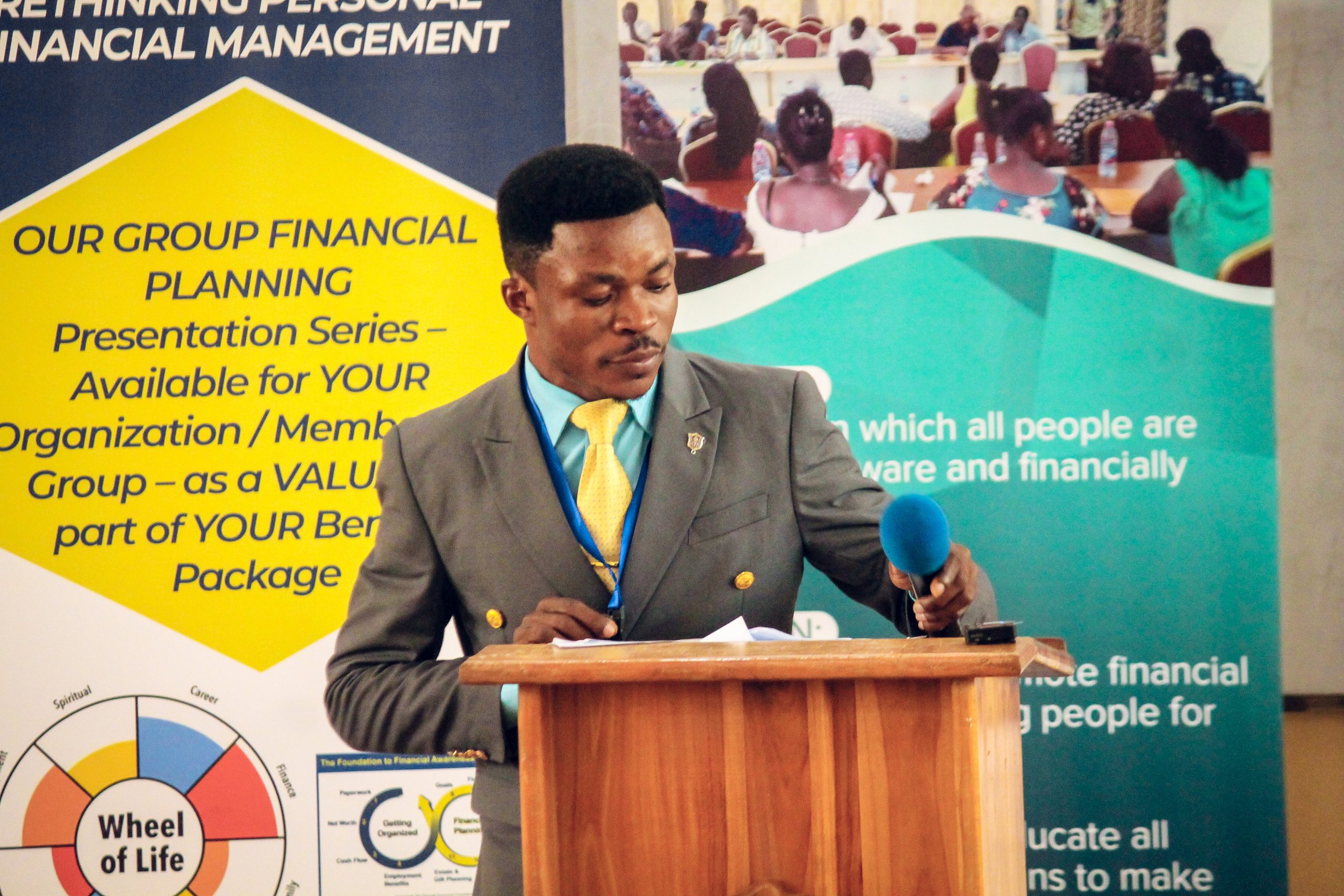Getting Your Financial House In Order for 2023 – Eighteen things to do – Peter Kwadwo Asare Nyarko
The New Year brings new opportunities to develop better habits and achieve better financial health. To set yourself up for success in 2023, kindly consider these money tips.

1. Check Your overall Financial Position
Take a snapshot of your overall financial health and an easy way to get a general sense of how you’re doing. Workout your networth statement and that of your cash flow statement. Financially speaking, your networth is your total assets (what you own) minus your total liabilities (what you owe). Your cash flow is your income (money inflows) minus your expenses (money outflows).
2. Start a Budget and Stick to it
Creating and sticking to a budget is the best thing you can do for your finances. Not only is it a great way to track what you spend, but it will also help identify where you can save money! To get started, track all of your daily spending for at least a month to get a clear idea of your finances. Then review where you spend money to look for expenses that you can eliminate to save money.
3. Pay Down Debt
Paying off your debt is an important step in becoming financially healthy. There are two basic strategies to help you reduce debt: the highest interest rate method and the snowball method. The goal of the highest interest rate method is to pay off the highest interest rate debt as quickly as possible, because it is costing you the most money. The goal of the snowball method is to pay off your smallest debt as soon as possible. Do this by making the minimum payment on all of your debts, but put any extra funds toward the balance of your smallest debt. Once the smallest debt is paid off, dedicate that freed up money to the next smallest debt and so on—just like making a snowball.
4. Start Investing Now
Investing is one of the fastest ways to build wealth and it’s never too late to start! If you’re feeling intimidated by the amount of investment options out there, see a financial advisor or educator to gain a better understanding of investing and how the various investment options works.
5. Build an Emergency Fund
An emergency fund can be a lifesaver when unexpected challenges happen like losing your job or getting into an accident. To decide how much money you need to save, calculate your monthly expenses including rent, utilities and basic needs. Many financial experts agree that an emergency fund should cover at least three to six months of expenses.
6. Meet with Your Financial Advisor/Educator/Coach
Planning is the essential first step toward financial well-being and it’s important to meet with your financial advisor regularly. It’s best to review your investments, provide updates on what has changed in your life – marriage, birth of a child or death of a spouse – and ensure your current investment plans are still in line with your financial goals. Contact PKAN Capital Consulting to learn more about financial planning.
7. Save More: Pay Yourself First
If saving is not already a habit, make it one in 2023 by paying yourself first. It’s always good to put money away at the beginning of the month rather than at the end when you may have spent it. To make saving simple, schedule automatic payments for as little as $10 to go from your checking account to your savings account – too easy! You can also get a piggy bank for all your coins. Don’t forget, money; saving even a little can make a huge difference over time.
8. Identify Your Financial Goals
Before you can make progress toward any financial goals, you have to identify what they are. Are you hoping to buy a home? Pay off your auto loan? Save money for a special vacation? Setting specific goals is the key to outlining a plan to reach these goals.
9. Commit to No-Spend Days
Pick a weekend each month and commit to not spending any money for at least one day. You can eat at home, find free entertainment and spend quality time with your loved ones instead. A commitment to this habit throughout the year will provide the most benefit to improving your financial health.

10. Boost Retirement Contributions
If possible, make a boost to your retirement contributions. At the very least, contribute enough to secure your your future. If you can contribute more to any of your retirement plans, do so. Consider applying your next pay raise to your contribution. You’ll thank yourself later!
11. Get Healthy without Joining a Gym
Aim to reach your fitness goals without a pricey gym membership. There are lots of ways to do so, but here a few ideas: use free exercise videos online, workout at the park or go on hikes.
12. Re-evaluate Your Employee Benefits Package
Take the time to really dive into what your employee benefits offer. Do you have sufficient health insurance, life insurance and disability insurance? Has anything changed that would help reduce what you contribute to benefits? Would a health flexible spending account or health savings account be more applicable to you and your lifestyle? Talk to your human resource representative if you need help.
13. Subscribe to a Financial Podcast and Take a Financial Literacy Course
Increase your personal finance expertise! Podcasts are becoming a popular way to learn. With topics ranging from saving and budgeting to economic trends and retirement, take note of the information and advice a financial podcast may provide to help improve your financial health.

To get started, consider registering for Money Mastery Masterclass with Peter Kwadwo Asare Nyarko or subscribe to Peter’s Financial Coaching for the year!
14. Cancel Unused Subscriptions
If you are billed automatically, you might not realize that you are paying for things you no longer use. Take time to review the subscriptions, memberships or services that you may have forgotten about. Take the money you were spending on these and add it to your savings account.
15. Declutter and Sell Stuff
Get rid of the clutter! Your home will feel more spacious and relaxing after going through old stuff such as books, movies, clothes and even furniture that you no longer use. Putting those items up for sale will also bring in some extra cash. Use resources like Facebook Marketplace, Instagram, Tonaton, and other digital marketing platforms or consider having a yard sale.
16. Take on a Gig or Part-Time Job
Side jobs, whether long-term or short-term, can add a significant boost to your bank account. No matter your abilities or experience, there is a part-time gig out there for you.
17. Book a Vacation Early
Everyone wants a vacation or small getaway that doesn’t break the bank. Booking a vacation early may help you find the best available deal and offer more accommodation choices. Take the time to research airfare and hotel expenses well in advance to help determine a travel budget and lock-in some great rates.
18. Rethink Expenses that Wipeout Budgets
Cell phone plans – consider changing to a no-contract plan, keeping your phone longer and maybe reducing data usage.
Takeout meals – dining out occasionally is fine, but if you’re frequently bringing home takeout meals, it may be time to start cooking at home.
Gift giving – there always seems to be a holiday or event that requires a gift – birthdays, weddings, valentine day, Christmas – and these can destroy your budget. Talk with family and friends to set up new traditions for gift giving that are less pricey or cost nothing at all.

In conclusion, money management and financial planning are key elements of life planning. Get it right in 2023 by being intentional about it.

Peter Kwadwo Asare Nyarko is a Financial Literacy Advocate & Educator, Personal Finance and Business Consultant & Coach. Executive Director, Center for Financial Literacy Education Africa, Lead Consultant, PKAN Capital Consulting
Reach out to Peter on all social media or Google Peter Kwadwo Asare Nyarko and follow the links to connect!
Email: peternyarko403@gmail.com
Whatsapp: +233278553887
Center for Financial Literacy Education Africa (CFLE Africa) is a not-for-profit social organization that develops and promotes financial literacy skills in Africans especially young Africans.







